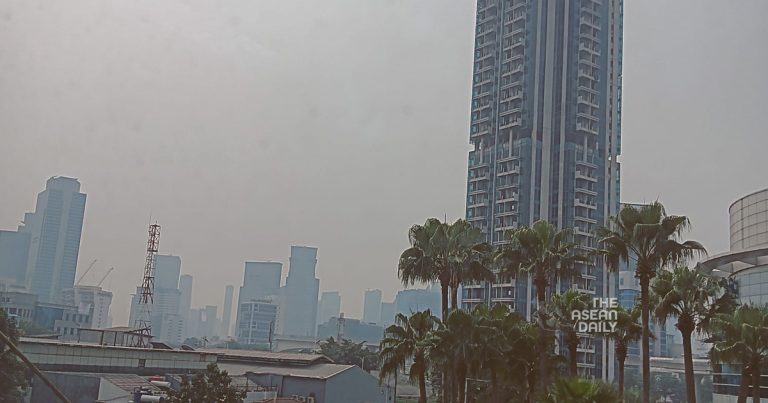29-8-2023 (JAKARTA) Indonesia has taken decisive action against 11 industrial firms for their failure to meet operational standards, a move aimed at addressing the escalating pollution crisis in the capital city of Jakarta, as announced by the country’s Environment Minister on Monday.
In recent months, Jakarta, a megalopolis teeming with approximately 30 million residents, has witnessed an alarming surge in air pollution levels, catapulting it to the top of global pollution rankings on multiple occasions since the outset of August. This revelation stems from data provided by the Swiss air monitoring agency, IQAir.
Initially, the government attributed the spike in pollution to adverse weather patterns and emissions from vehicles. However, recent acknowledgments from government ministers have implicated coal-fired power plants and factories in the vicinity of the capital as contributors to the crisis.
At a press conference, Indonesian Environment and Forestry Minister Siti Nurbaya Bakar disclosed, “We have imposed administrative sanctions on 11 entities.” She refrained from specifying the companies involved but clarified, “This means that, following thorough inspections, we have identified areas where they fail to meet the prescribed standards, and they are obligated to rectify these issues.”
The firms subjected to sanctions span various industries, including coal stockpiling, smelting, paper production, and charcoal manufacturing. Specific details regarding the nature of these administrative sanctions remain undisclosed.
This significant development unfolded on the same day that President Joko Widodo inaugurated Jakarta’s inaugural elevated light railway system. President Widodo underscored that this new transport infrastructure would serve as a vital tool in addressing the city’s chronic traffic congestion and contribute to mitigating pollution.
The Light Rail Transit system is set to connect central Jakarta with neighboring satellite cities, including Bekasi.
During a cabinet meeting last week, President Widodo acknowledged that the prolonged dry season, vehicle emissions, and industrial activities all played pivotal roles in the escalation of pollution levels in the capital.
Additionally, the Jakarta administration has taken proactive measures to combat the pollution crisis by implementing a two-month trial, beginning last week, where 50% of its civil servants are mandated to work from home. It is crucial to note that public services remain unaffected by this initiative, emphasizing that only non-essential government personnel are permitted to work remotely.




